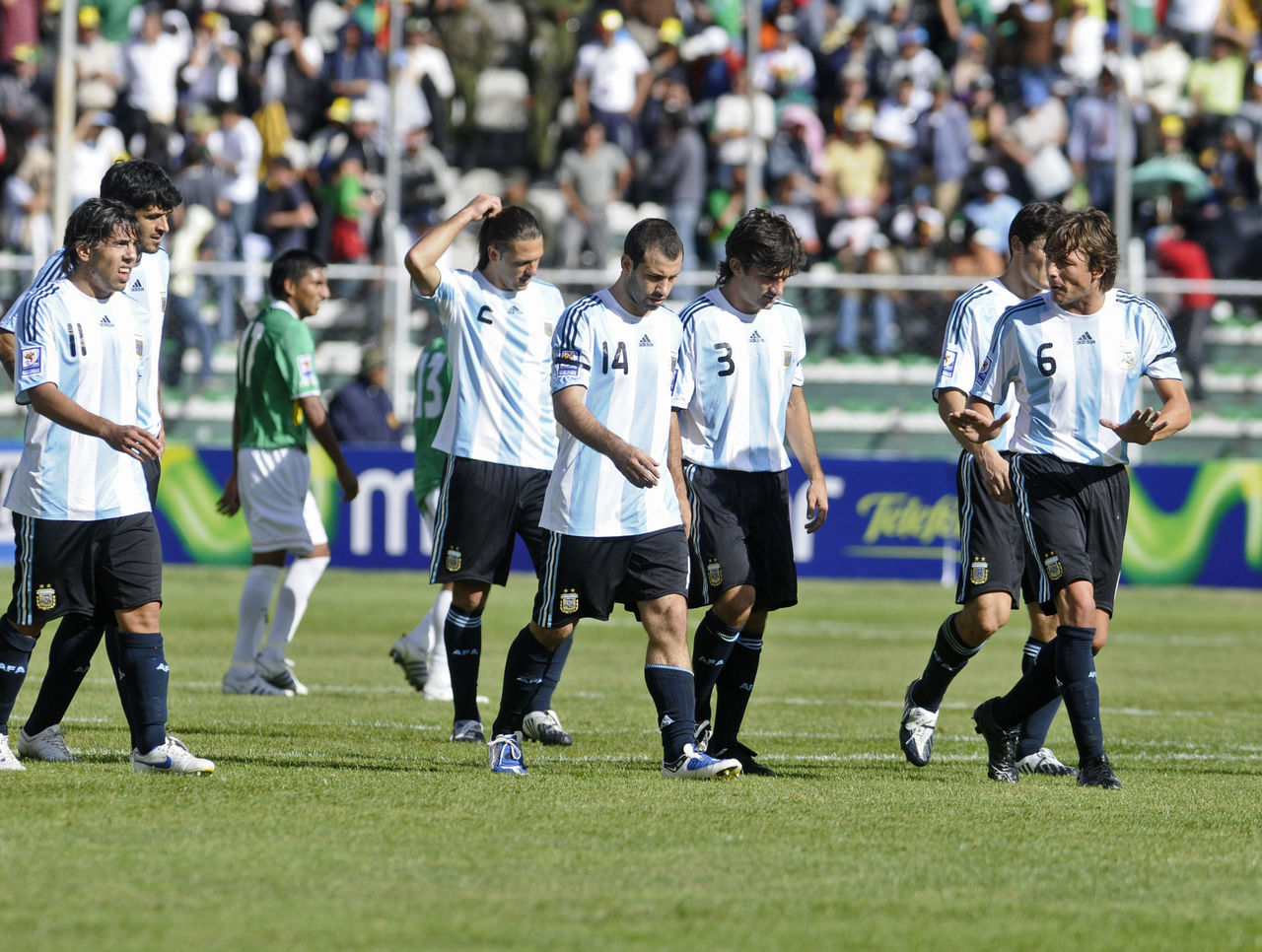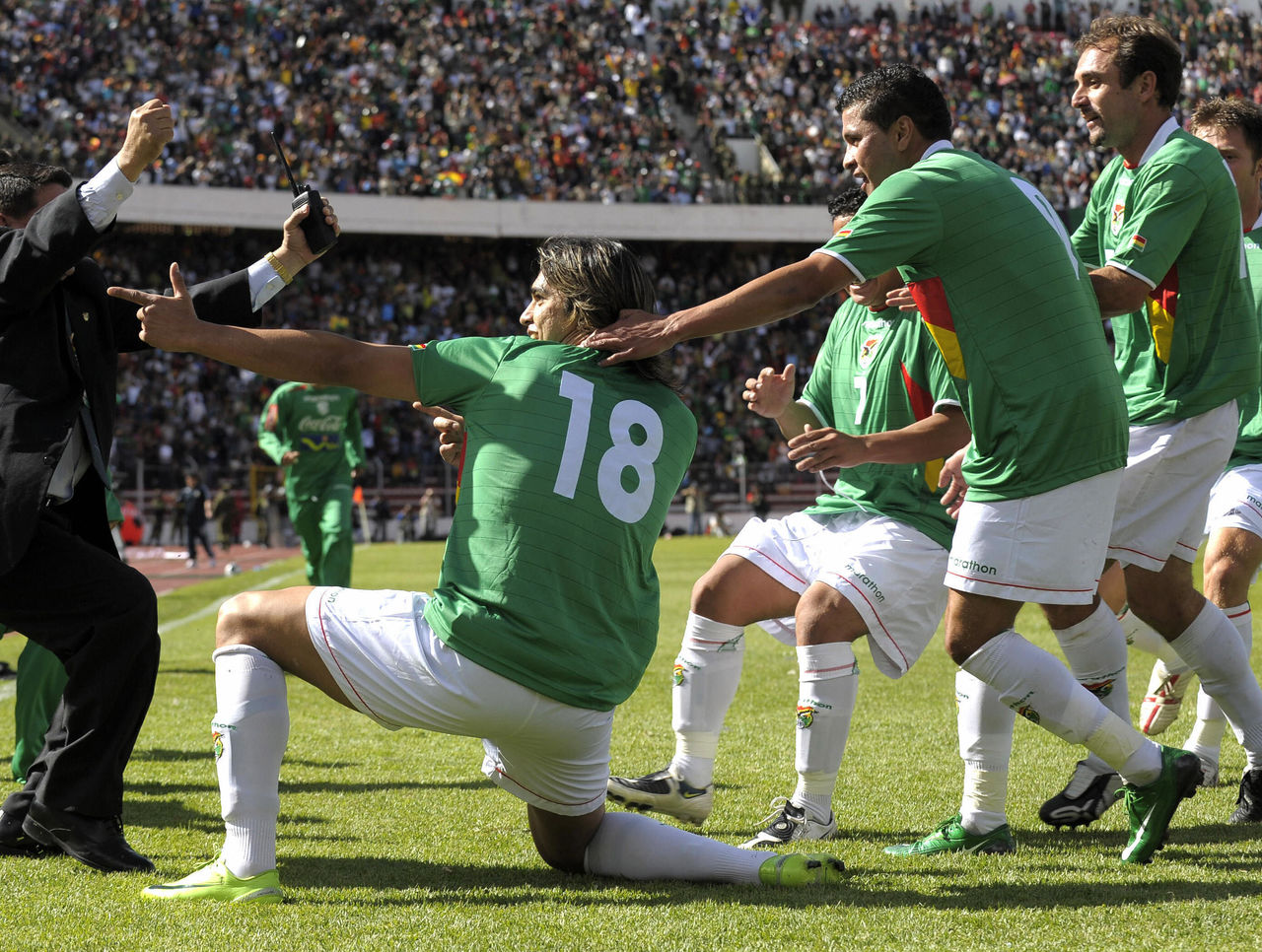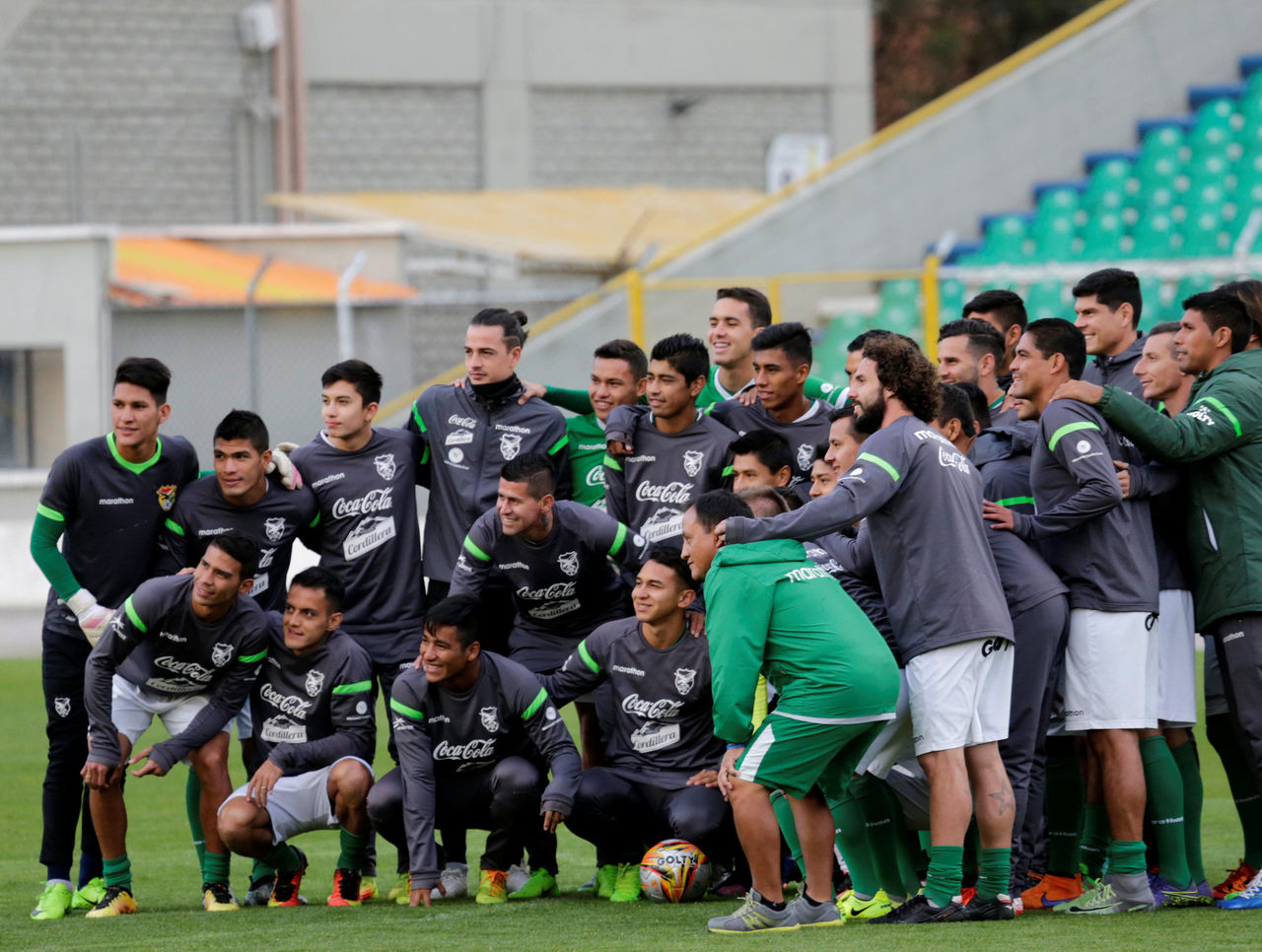Gasping for oxygen: Will Argentina suffocate in Bolivia once again?
It was Diego Maradona's second competitive game as Argentina's manager. El Pibe de Oro had been among the first to support a campaign by Evo Morales - Bolivia's first indigenous president - to overturn FIFA's ban on matches played over 2,500 metres above sea level, which was adjusted to 3,000 metres, and then to 2,750 metres.
But, on April 1, 2009 - less than one year after the ban on high-altitude football was suspended - Maradona observed Argentina suffer one of the worst results in its history in La Paz, Bolivia, approximately 3,600 metres above sea level. La Albiceleste was thrashed 6-1 at Hernando Siles, and the creator of the Hand of God was left with questions to answer.
Maradona avoided blaming the altitude after the defeat, instead opting to point the finger at Argentina's players.
"We have to give merit to Bolivia who were better than us in every part of the field," Maradona said. "There is nothing to say. They beat us well and now we have to start all over again. Bolivia played a great game and hit the target with every attack. They all played well from the goalkeeper to the last substitute."

It was, by many accounts, a one-off.
Argentina made the mistake almost every team makes when visiting Bolivia, trying to move up to the altitude just a few hours before kick-off. It seemed like a good idea from a medical perspective.
It's thought that the third day is when the effects of altitude are felt most, so many teams try to minimise the effects by arriving at Hernando Siles at the last minute. But, as Tim Vickery explained in the aftermath of the contest, doing so comes at a cost. Argentina had no time to adapt to the conditions or learn how to change its game due to the lack of oxygen. The lungs struggle and the ball is far quicker moving through the thin air.
There were other factors. Bolivia had found some form before the encounter. Joaquin Botero and Marcelo Martins entered the meeting as the top scorers in 2010 World Cup qualifying. The two strikers were rested for El Verde's journey to play Colombia days earlier, and they took the pitch against Argentina with fresh legs. Botero scored a hat trick and Moreno opened the scoring.
Argentina's defensive weaknesses were also to blame. Martin Demichelis and Gabriel Heinze were too slow and dropped deep to give themselves more time, opening up the pitch for Bolivia. La Albiceleste was fortunate that the massacre somehow slowed down after Angel Di Maria was sent off in the second half.

On Tuesday, Argentina will return to the scene of the crime, as La Albiceleste must visit Bolivia in 2018 World Cup qualifying. From an Argentinian viewpoint, the timing of the trip is far from ideal.
All the problems that have plagued Argentina remain. There is a dependence on Lionel Messi that shouldn't exist, and Bauza, just like Maradona, can't seem to figure out how to accommodate a wealth of attacking talent. La Albiceleste's 1-0 victory over Chile was as unconvincing as a win can be. A first half in which Argentina had no plan was followed by a second half in which La Albiceleste couldn't enter the final third. Sergio Aguero and Gonzalo Higuain were tripping over each other's feet, and its attacks became more and more sporadic as time went on.
How can a team boasting a quartet of Messi, Aguero, Higuain, and Di Maria only tally two shots on target through 90 minutes?
In Bolivia, Argentina will be forced to take the pitch without Javier Mascherano, Lucas Biglia, and Nicolas Otamendi, all of whom are suspended for the game along with Higuain. Meanwhile, Aguero will start on the bench as Lucas Pratto is given a chance to do what others couldn't do against Chile and score from open play. There are red flags everywhere.
Bolivia, with no hope of qualifying for the 2018 World Cup, is surely aware that there is an opportunity to shame Argentina for a second time, and El Verde's approach to the match bears an eerie resemblance to how the Andean team prepared for La Albiceleste eight years ago.
Many of Bolivia's best players didn't join El Verde for its excursion to Colombia, saving themselves for the contest against Argentina. Diego Bejarano, Edward Zenteno, Jorge Flores, Alejandro Chumacero, Diego Wayar, Raul Castro, and Pablo Escobar stayed at home. Many of them are employed by The Strongest, a club that is proving to be as lethal as a firing squad in the Copa Libertadores.

Fresh legs and form will be on Bolivia's side. Argentina, on the other hand, will be doing its best to avoid running out of breath. As a general rule, players lose over 30 percent of their athletic capacity without time to properly acclimitise to the altitude. It will be fascinating to see how Bauza approaches the game in the hours before kick-off.
"Every Bolivia goal was a stab in my heart," Maradona said after Argentina was eviscerated in La Paz. Bauza will be praying his heart, and his players' lungs, are left undamaged.